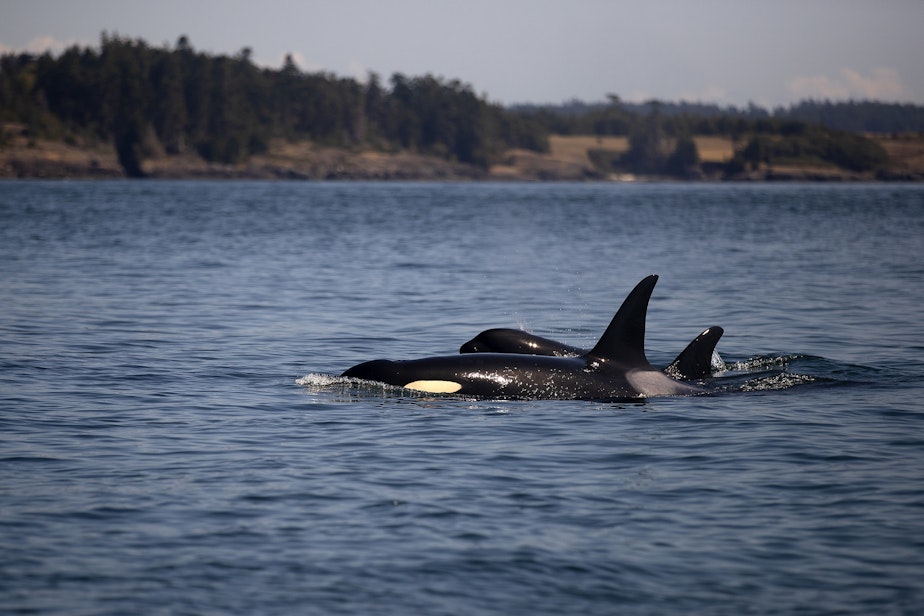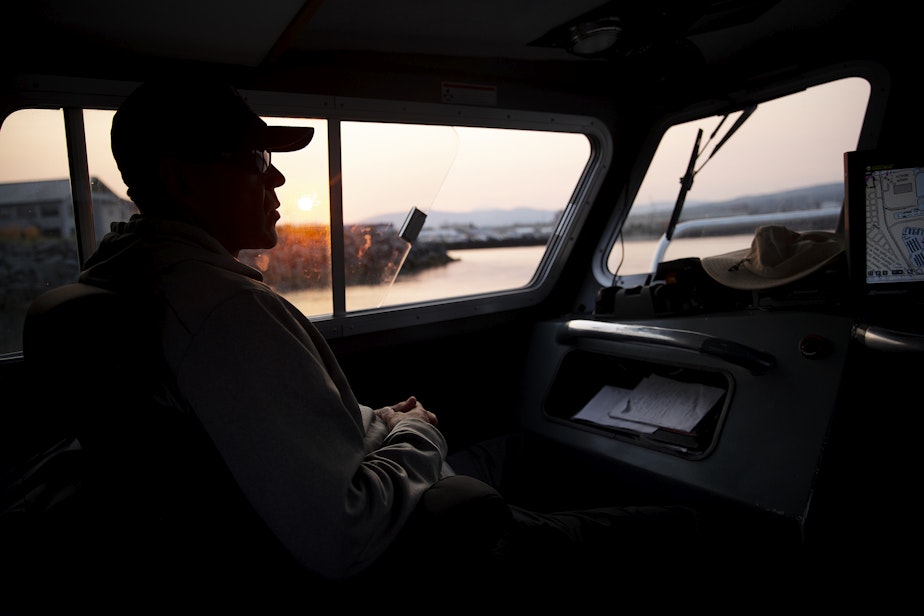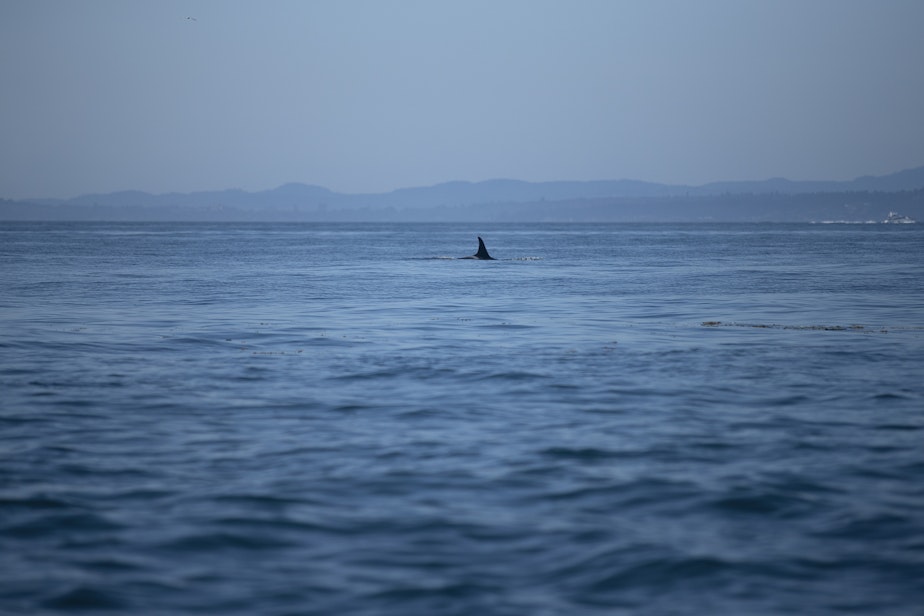Eavesdropping on orcas: love, grief, and family

Research has revealed that orcas have parts of their brains that are more physically developed that human brains - the parts that have to do with language, emotion and memory. What can we learn by eavesdropping on orcas?
This past summer, I was in Alaska in a little coastal town called Seward - a gorgeous spot on the Kenai Peninsula tucked between the ocean and some giant glacier-covered mountains. I met a guy named Dan Olsen, who records killer whale calls using an underwater hydrophone.

“From a mile away you can know which family it is. So it's kinda like Christmas, like opening the package and putting down the hydrophone and knowing which pods are around," said Olsen.
Olsen gets all kinds of information from these recordings. The calls bring the underwater world of orcas alive. But there's a lot more going on in these clicks and whistles than you might think. Like, how their dialects, their languages, evolve, and even become part of orca family “culture.”
“Man, their ceremonies are beautiful. Their dances and songs are beautiful. They represent so much,” said Jay Julius, a member of the Lummi nation.

From Julius’s perspective, there's something deeper going on in the conversations among these orca pods of the Pacific Northwest.
“In all honesty and all reality, it's a story of grief."
The orca story is one of human misunderstanding and generational trauma. But it's also a story of celebration, family, and a sense of place. Exploring their chatty underwater world might just help us understand how they are communicating… and what they are trying to say.

THE WILD is a production of KUOW in Seattle in partnership with Chris Morgan Wildlife and Wildlife Media. It is produced by Lucy Soucek and Matt Martin, and edited by Jim Gates. It is hosted, produced and written by Chris Morgan. Fact checking by Apryle Craig. Our theme music is by Michael Parker.
Follow us on Instagram (@thewildpod) for more adventures and behind the scenes action!


